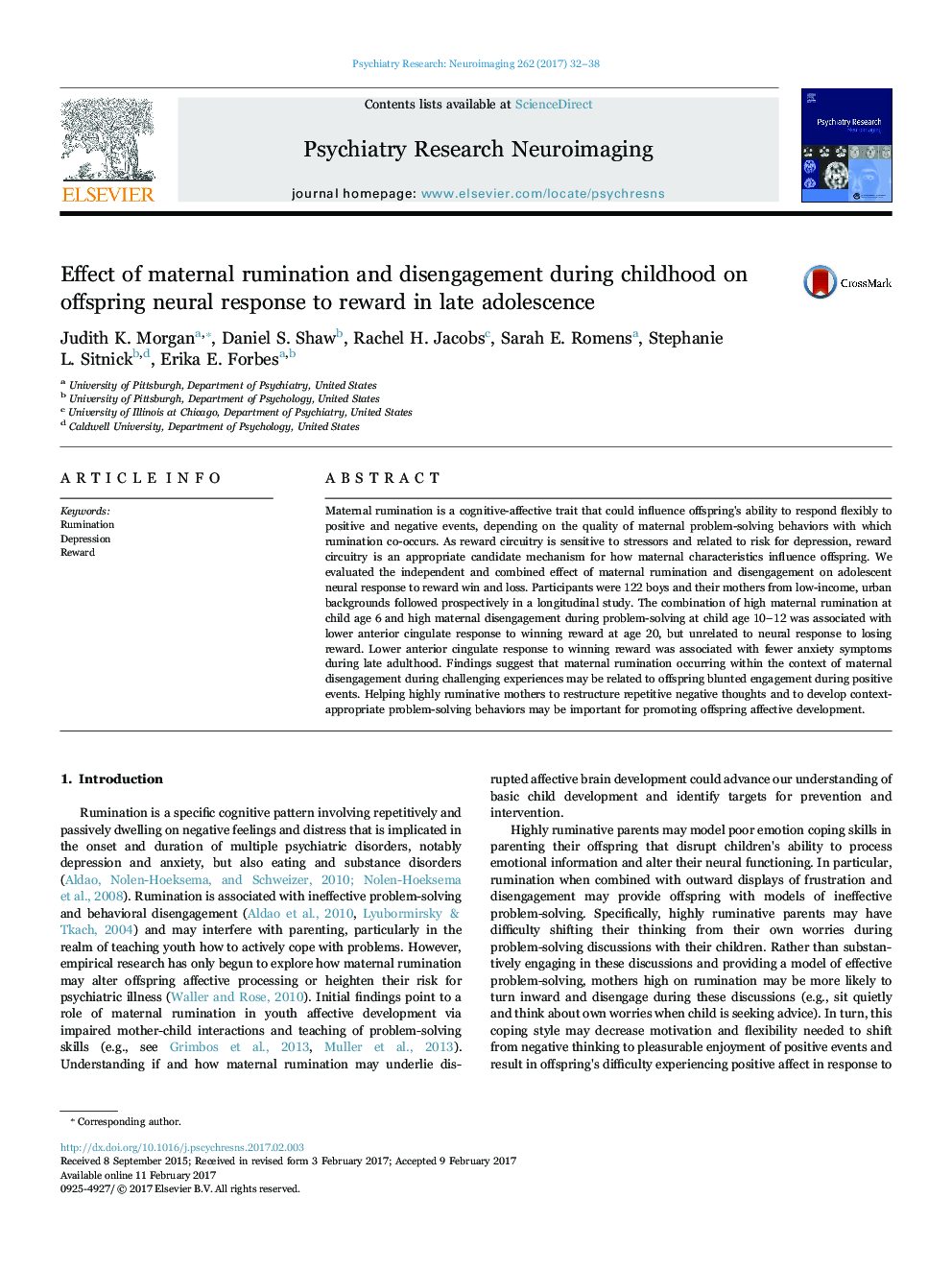| Article ID | Journal | Published Year | Pages | File Type |
|---|---|---|---|---|
| 4933976 | Psychiatry Research: Neuroimaging | 2017 | 7 Pages |
â¢Rumination is a cognitive-affective trait present in and out of depression.â¢Maternal rumination may interfere with problem-solving with her offspring.â¢Rumination combined with disengagement predicted boys' reward alterations.â¢Teaching ruminative mothers to be fully engaged may promote healthy emotion coping.
Maternal rumination is a cognitive-affective trait that could influence offspring's ability to respond flexibly to positive and negative events, depending on the quality of maternal problem-solving behaviors with which rumination co-occurs. As reward circuitry is sensitive to stressors and related to risk for depression, reward circuitry is an appropriate candidate mechanism for how maternal characteristics influence offspring. We evaluated the independent and combined effect of maternal rumination and disengagement on adolescent neural response to reward win and loss. Participants were 122 boys and their mothers from low-income, urban backgrounds followed prospectively in a longitudinal study. The combination of high maternal rumination at child age 6 and high maternal disengagement during problem-solving at child age 10-12 was associated with lower anterior cingulate response to winning reward at age 20, but unrelated to neural response to losing reward. Lower anterior cingulate response to winning reward was associated with fewer anxiety symptoms during late adulthood. Findings suggest that maternal rumination occurring within the context of maternal disengagement during challenging experiences may be related to offspring blunted engagement during positive events. Helping highly ruminative mothers to restructure repetitive negative thoughts and to develop context-appropriate problem-solving behaviors may be important for promoting offspring affective development.
